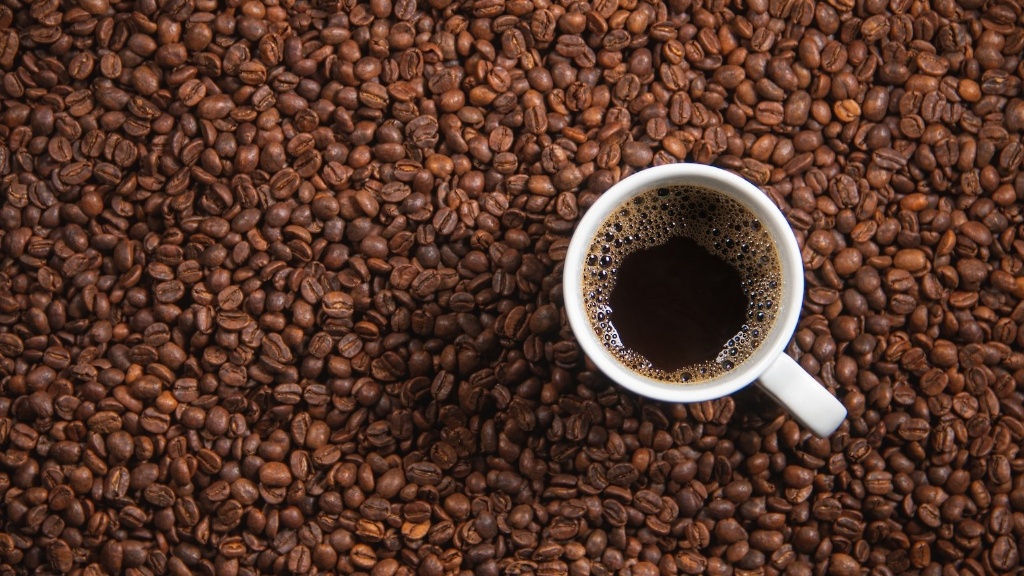Can we drink coffee while breastfeeding? As many mothers know, coffee is a quick and easy way to get an energy boost. The concern is how coffee consumption can affect babies. The answer is that as long as you’re drinking coffee in moderation and depending on the type of coffee you drink, you may be able to continue drinking coffee while breastfeeding.
Drinking coffee while breastfeeding can lead to higher levels of caffeine in breast milk for several hours after consumption. In general, it’s best to limit the amount of coffee you consume to no more than 200mg. That’s about the amount found in one 8-ounce cup of coffee. It’s important to note that espresso and some specialty coffees may have more concentrated amounts of caffeine than traditional drip or filtered coffee.
The American Academy of Pediatrics recommends that pregnant women avoid drinking more than two 8 oz. cups of coffee per day, and nursing mothers should avoid drinking more than that. The American College of Obstetricians and Gynecologists (ACOG) also notes that moderate caffeine consumption—up to 300 mg per day—does not appear to increase the risk of adverse outcomes for the mother or the fetus. However, ACOG does not make any specific recommendations for breastfeeding mothers.
When consumed in moderation, coffee is unlikely to have any adverse effects on your baby. However, too much coffee can cause your baby to become irritable or have difficulty sleeping. It can also lead to gastrointestinal upset such as increased bowel movements and decreased appetite in some infants. Similarly, drinking too much coffee can make you feel more anxious or agitated, which can in turn affect the way you interact with your baby.
In addition to caffeine, coffee also contains other compounds, such as volatile compounds and antioxidants. These can potentially affect your baby, so it’s important to monitor your baby when consuming coffee while breastfeeding. You may also want to avoid flavored coffee drinks or mixed coffees, as these may contain added sugar, which can be a health concern for babies.
Overall, it is generally safe to consume coffee while breastfeeding as long as you are doing so in moderation. You may need to adjust your caffeine intake depending on the type of coffee you drink and the sensitivity of your baby. Paying attention to your baby’s behavior, and monitoring your own caffeine intake can help you decide if coffee is a good choice for you and your baby.
Effects of Caffeine
Consuming caffeine while breastfeeding has been linked to several potential effects in breastfeeding babies, including restlessness, irritability, and difficulty sleeping. Additionally, breastfed babies may be more sensitive to the effects of caffeine than formula-fed babies. When too much caffeine enters the baby’s system, it can create nervous system stimulation, increased heart rate, difficulty sleeping, and digestive issues.
Infants can be particularly sensitive to even a small amount of caffeine, which has the potential to cross through breast milk and into the baby’s system. Therefore, it is important for mothers to limit their daily caffeine intake. Studies have shown that babies who are exposed to higher levels of caffeine can become agitated, have difficulty sleeping, and become irritable.
In addition to the potential effects of caffeine on babies, consuming too much caffeine can also lead to mood changes and restlessness for the mother. Caffeine has been linked to anxiousness and agitation, which can interfere with breastfeeding and the mother’s ability to bond with her baby.
Overall, it is recommended that breastfeeding mothers limit their daily caffeine intake to no more than 200 mg per day (about two 8 oz. cups of coffee). Studies suggest that even moderate amounts of caffeine can have an effect on babies, so it’s important to monitor your caffeine intake and pay attention to how your baby is reacting.
Coffee Beverages
When consuming coffee while breastfeeding, it is important to be aware of the type of beverage that you are drinking. Coffee beverages can vary widely in their caffeine content, with some containing significantly more caffeine than others. For example, drip coffee is relatively low in caffeine, while espresso and energy drinks have high levels of caffeine.
Coffee drinks can also contain added sugars, artificial sweeteners, and flavors, which can be a concern for babies. Sweeteners and flavors can affect the taste of the breast milk and make it more difficult for the baby to latch. Additionally, some sweeteners have been linked to obesity and other health issues in both adults and children.
When consuming coffee while breastfeeding, it is important to be aware of the type of beverage that you are drinking. By choosing low-caffeine coffee drinks and avoiding added sugars, artificial sweeteners, and flavors, you can ensure that your baby is not exposed to excess amounts of caffeine or other potential health concerns.
Time of Day
Another important factor to consider when drinking coffee while breastfeeding is the timing of your consumption. Caffeine has been shown to remain in the breast milk for up to six hours after consumption, which means that if you have coffee in the evening, it can still affect your baby’s sleep.
It is generally recommended that breastfeeding mothers wait until at least after the baby has had their morning feeding to have their coffee for the day. This will ensure that your baby has the restful sleep that they need, and it will also help you avoid consuming too much caffeine in one day.
Additionally, if you find that your baby is having difficulty sleeping after you have had your coffee for the day, you may want to consider limiting your caffeine intake or avoiding coffee altogether. Monitoring your baby’s sleep and energy levels can help you determine if coffee is the right choice for you and your baby.
Coffee Alternatives
If you need a quick energy boost, but don’t want to drink coffee while breastfeeding, there are a few alternatives that you can consider. Low-caffeine alternatives, such as green tea, chamomile tea, and decaffeinated coffee can be a good option for getting the energy boost you need without the potential risks associated with too much caffeine.
Additionally, some nutritious snacks, such as a banana, almonds, or yogurt, can be a great way to get an energy boost. These snacks can provide you with necessary nutrients, as well as carbohydrates and proteins to keep you energized throughout the day.
Lastly, getting adequate rest is a great way to ensure that you are getting the energy you need to care for your baby. Aiming for 7-8 hours of quality sleep each night can be a great way to keep your energy levels up and help you avoid relying too heavily on caffeinated drinks.
Fluid Intake
It is important for mothers to stay hydrated and get enough fluid in order to provide their babies with the nutrients they need. While coffee and other caffeinated beverages can help to increase energy levels, they are not good replacements for adequate fluid intake. Generally, it is recommended that mothers drink at least 8-10 glasses of water per day.
In addition to water, there are also other fluids that can help with hydration and provide essential vitamins and minerals. These include herbal teas, low-sugar juices, coconut water, and broth-based soups. Including these fluids in your diet can help ensure that you are getting all of the nutrients that you need while breastfeeding.
It is also important to be aware of how much caffeine you are consuming each day. When drinking caffeinated beverages such as coffee, tea, and energy drinks, it is important to keep track of how much you are drinking and to make sure that you are not drinking too much each day.
Conclusion
In conclusion, drinking coffee while breastfeeding is generally safe. However, it is important to monitor both your caffeine intake and the type of coffee beverage you are consuming. It is also a good idea to pay attention to your baby’s behavior and energy levels after you have had coffee, as well as to limit your caffeine intake to no more than 200 mg per day. Additionally, you should make sure to include other fluids and energy-boosting snacks in your diet, in order to provide your baby with the nutrients they need without relying too heavily on caffeinated beverages.





